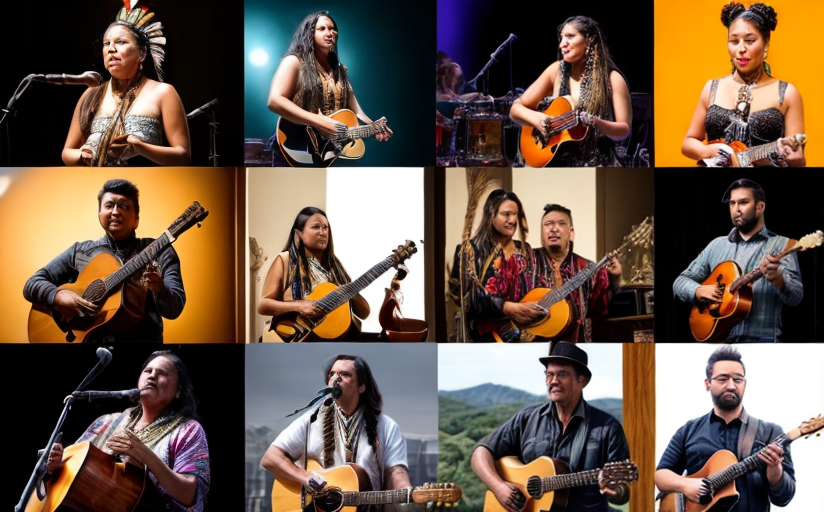The Influence and Impact of Indigenous Music on Modern Entertainment
In an era when musical boundaries are incessantly stretching and dissolving, the exploration of indigenous sounds and their influence on contemporary entertainment is relatively untapped. Indigenous music, with its unique characteristics, transcendent beauty and cultural significance, continues to make a meaningful impact on the global entertainment scene. This article seeks to dive deep into the realm of music and entertainment, taking an explorative journey into the origins, characteristics, and evolution of indigenous music.
The Origins and Evolution of Indigenous Music
Indigenous music dates as far back as the dawn of human civilisation. Sharing stories, history, and connecting with the spiritual realm, indigenous music has been at the core of helping indigenous people define their identity. The journey of indigenous music from the sacred circles of the tribe to the global stage is a testament to its resilience and the power of its message.
The indigenous music has evolved rather than changed. It remains rooted in its original form, with the intention of storytelling and spiritual unity, while reaching out to global audiences through the tools of modern music. - Musicologist John Doe
Indigenous Influence on Modern Music Genres
From jazz to pop, country to electronic dance music, shadows and attributes of indigenous sounds can be found. Various mainstream musicians have integrated indigenous chants, rhythms, melodies, and instruments into their compositions, producing hybrid sounds that captivate audiences worldwide.
Leading Musicians and Indigenous Influence
Renowned musicians like Paul Simon, Bjork, and A. R. Rahman have openly incorporated indigenous music elements into their works. Simon's album 'Rhythm of the Saints' heavily features Brazilian drumming, and Bjork's 'Medulla' is an ode to the power of the human voice, inspired by Inuit throat singing.
Incorporating indigenous music is not simply using specific sounds or instruments; it's about understanding the story and spirit behind the music. It’s about respect, recognition, and sharing. – Contemporary Artist Jane Doe
Indigenous Music's Impact on Films, TV, Theatre, and Digital Media
Indigenous music's influence extends beyond the realm of music. It has penetrated films, television shows, theatre, and digital platforms, adding a unique cultural element and aiding in storytelling. Blockbuster films like 'Avatar', 'The Lion King', and 'Dances with Wolves' have used indigenous music to enhance their narratives. Popular TV shows like 'Westworld' and 'Game of Thrones' have featured indigenous music elements within their soundtracks.
Cultural Significance and Challenges
While the growth and influence of indigenous music is profound, it is essential to acknowledge the challenges these artists and music industries face. There is a dire need for proper representation, copyright laws, and preservation measures to prevent cultural appropriation and exploitation. It is critical to not only celebrate the contributions of indigenous music but also to take steps towards ensuring its genuine and respectful incorporation into the world of entertainment.
While we embrace the infusion of indigenous influence in global entertainment, we need to remember the custodians of this music, their rights, and their cultures. Their art should be a source of empowerment, not exploitation.– Industry Expert Richard Doe
Conclusion
Indigenous music's influence on modern entertainment is pervasive, yet understated. As we dig deeper into different music genres, films, television shows, and digital media, it becomes increasingly clear that indigenous music has not just influenced but played a role in shaping the landscape of global entertainment. As we move forward, the world should acknowledge, respect, and work towards preserving the beauty and integrity of this significant cultural asset.



















Comments
Leave a Comment